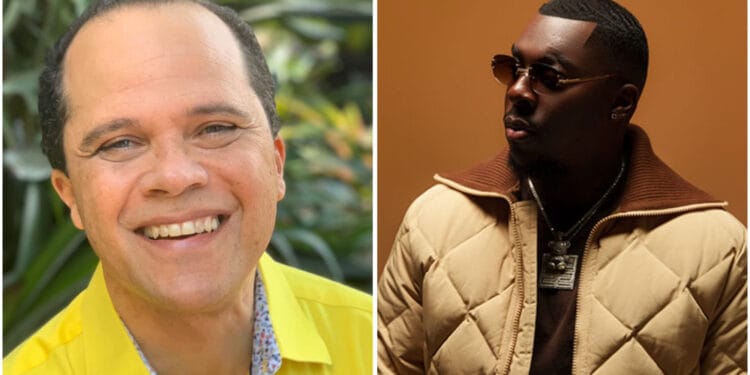Fabrice Rouzier’s recent complaint against Joe Dwèt File and Tonton Bicha for copyright infringement has rekindled an essential debate on intellectual property in the world of Haitian music. Rouzier, as interpreter of the song “Je Vais,” is merely joining a tradition of interpretation that is an integral part of our musical culture. But what right does he have to claim exclusivity over a work which, on the face of it, belongs to a collective heritage handed down to us by Les Frères Dodo?
It’s undeniable that Rouzier has brought his personal touch to this emblematic song, but this interpretation in no way takes away the right of other artists to do the same. This behavior, which seems to emanate from a deep-seated jealousy, raises questions about the way certain artists position themselves in the Haitian musical landscape. Rouzier, by acting in this way, is part of a line of moguls who, while controlling a large part of the country’s economic wealth, seek to monopolize artistic creation. Why does an artist like him, who himself admitted in an interview that his version was only an interpretation, take the liberty of pissing off Joe Dwèt File?
The fear that Joe Dwèt File’s version could win a Grammy Award, or simply commercial success via streaming platforms, could be behind this move.
In essence, music evolves through exchange and reinterpretation. If every artist were to take legal action every time a song reminded him or her of their own, the whole creative process would be jeopardized.
It is worrying to see that this quest for recognition seems to be motivated more by financial interests than by a genuine desire to defend art. Claims for damages and legal fees testify to a desire to monetize a culture and make those who dare to draw inspiration from it pay.
Also read: Accusations of plagiarism: Fabrice Rouzier sues Burna Boy, Joé Dwèt Filé and Tonton Bicha
Protecting artists’ rights is essential, but it’s just as crucial to recognize that music must remain a space for sharing, interpretation and exchange.
Instead of claiming ownership of a common heritage, Rouzier should encourage the creativity of his peers, as he did in his interview with Guy Wewe.
By joining forces rather than confronting each other, Haitian artists could not only enrich their own musical heritage, but also promote a culture where collaboration is valued over jealousy.
Stay connected with Hebdo24
Via Our WhatsApp Channel https://whatsapp.com/channel/0029Va7ff6tEFeXrqCON9u3j












Commentaires